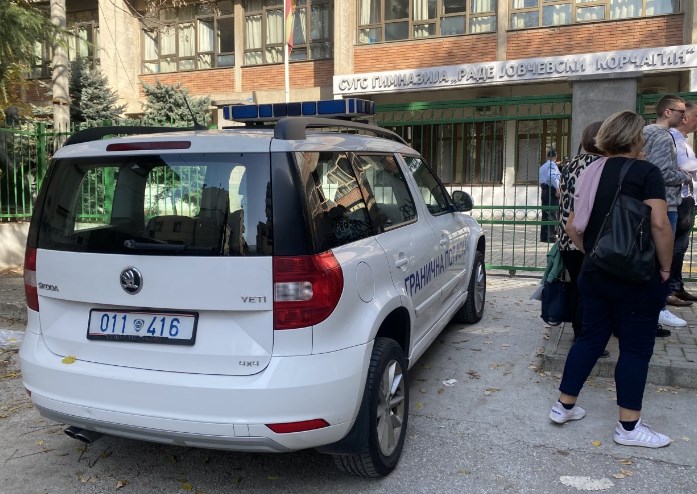Bomb threats in high schools are being sent to professors, Republika sources claim. According to them, some of the professors receive messages on their e-mail addresses that a bomb has been planted in the building.
When the first threat was made, we as professors did not know what it was about. Uniformed persons entered and told us that there was a police exercise, and to leave the building. We went outside and standing in front of the door I asked one of the policemen how long the whole exercise would last, to know if I had time to sit across the street and have a coffee. Then the policeman said to me – what an exercise, there is a bomb threat, step aside. Then for the next threat, there was a greater panic among the professors. A colleague, a professor, asked to see the principal of the school to talk. She received an email message about a bomb planted in the school building. The director did not want to indicate whether this happens to other professors, or if she is the only one, after which the colleague went to the police station. There she was told that the threats were mainly sent to the addresses of professors, but that the choice was apparently completely random, that the threat was not sent to her on purpose, a professor from a high school in Skopje, who wanted to remain anonymous, told us.
Regarding the detention of Nikola Nikolovski as a suspect for the bomb threats, she says that it was tragic-comic when they received a message from their superiors asking if they had a student with such a name and surname, and the phone number that was left in the message about the allegedly planted bomb was also indicated.
We received a viber message asking if we have a student with the name Nikola Nikolovski and the phone number that was indicated in the same message. It is the number that was left in the message itself, along with the name and surname. Such a combination of name and surname is not rare, but it turned out that the students with that name and surname do not have that mobile phone. Very soon we heard on television that Nikola Nikolovski was arrested. There was also a message from an email that had the data of a student, but after the check, it was established that it was not about that person. But there was no fame for him, as there was for Nikola Nikolovski, adds the professor.
She says that panic is created among both professors and students.
Some of the students did not come to school in those days when there were frequent reports of planted bombs. Some parents did not allow their children to go to school, and some, of course, took advantage of the situation, under the pretext that they were afraid for their lives, and did not show up. But there are also professors who are panicking. Some have taken sick days and do not come to work. In reality, this with the threats made a mess with the classes, commented the professor.
Almost a month has passed since the first report about bombs planted in high schools in Skopje, and apart from the scandal with the arrest of Nikola Nikolovski, it seems to be nothing concrete. New reports happen every other day. The Minister of Internal Affairs, Oliver Spasovski, said yesterday that they know which countries the emails come from and that they are “determining the facts in detail”.
There are several features, all fake, but each must be handled according to protocol. Now there is also a separate European convention on cybercrime for threat-level assessment and we are working on that together. The contents of the emails are different. There are no negotiations with terrorists, and when there is a false announcement, there is nothing to discuss, and we have taken all necessary measures. The threats appear on Wednesday, Thursday and Friday and in one school shift. These are some of the things that are analyzed. The investigation is very complex, not because many departments of the Ministry of the Interior are involved, but it is complex because we determine the IP addresses. They are sent from outside Croatia, and Switzerland, and virtual emails are created. All internet providers that can establish such a connection must provide answers and we forward them to the terrorism department, says Spasovski.




Comments are closed for this post.